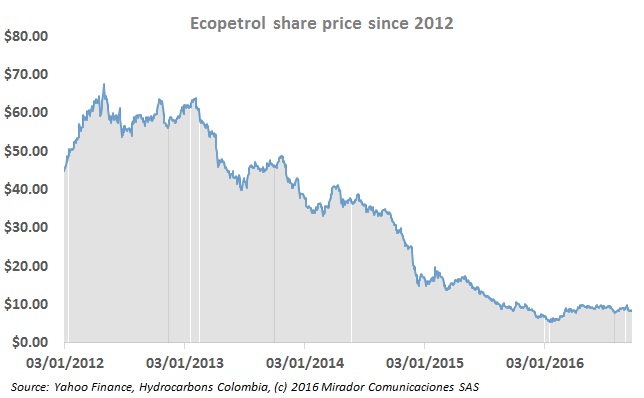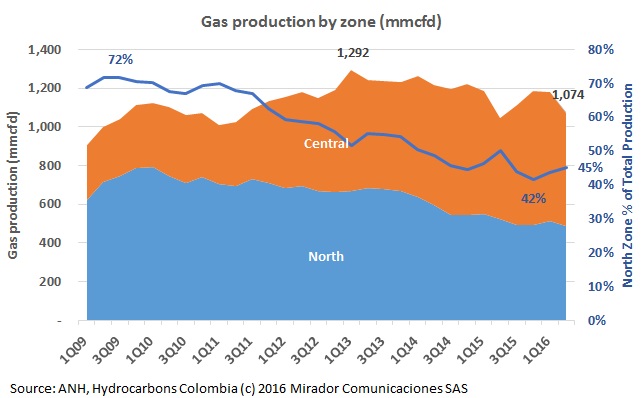Is it a leak or is that oil seeping from the ground? A peculiar instance of environmental problems has occurred in Barrancabermeja in the Campo 23 village, after oil started seeping from the area. Ecopetrol (NYSE:EC) responded but says it is a natural occurrence.
The Barranquilla Chamber of Commerce has signed a cooperation agreement with the Chamber of Commerce of Aberdeen and Grampian, Scotland, to exchange information on the offshore industry and promote production in the Caribbean city.
The Ministry of Mines and Energy (MinMinas) said the second phase of its joint program with the National Hydrocarbons Agency (ANH) to reduce community conflict, the “Territorial Strategy” (ETH), has consolidated its second phase. The ministry shared results thus far in 2016,

Ecopetrol (NYSE:EC) needs capital to start a new exploration campaign and add new production, and non-committal statements from its president Juan Carlos Echeverry have led to speculation that the government could issue another round of shares.
Following on a push to encourage offshore production, the National Hydrocarbons Agency (ANH) is planning to offer 45 offshore blocks in Caribbean and Pacific waters in an upcoming auction.
The governors of Arauca and Meta spoke at the launch of an employment initiative being put on by the Labor Ministry, and accused oil companies of ignoring local workers, contractors and not participating in public employment services.
The USO has been politicking and reaching out to friends in high places, in an effort to build political momentum and recruit allies ahead of an Ecopetrol (NYSE:EC) strike planned for October.
Here is the third installment of Norton Rose Fulbright’s analysis of the ANH’s draft accord. We believe this could transform the regulatory framework for the industry significantly.

The National Hydrocarbons Agency (ANH) has not published detailed 2Q16 results for gas so we are unable to do a similar analysis to that we did last week for crude oil. But we can look at trends and the principal one is shown in the graph.
Caquetá congressional representative Harry González said that public order problems which have arisen following the start of hydrocarbons exploration activities show that a departmental popular referendum is necessary to see if the residents want to accept the activity.